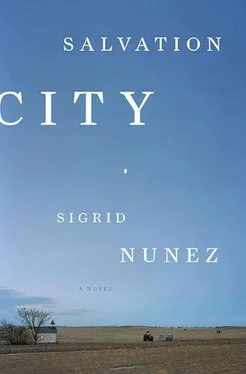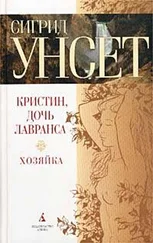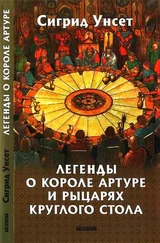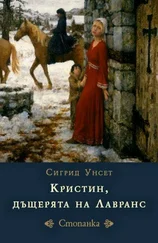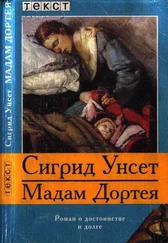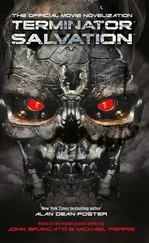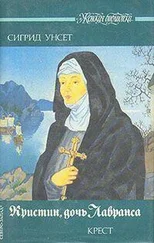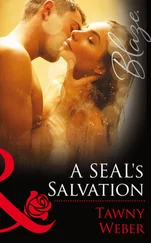Of course they both wanted children, but neither was in any big hurry. There was Tracy’s health to consider, and also they wanted time to get to know each other. The better they knew each other, the more they loved each other. Tracy’s cancer was cured. They were researching adoption programs when the flu broke out.
IT WAS THAT TIME OF YEAR when going between sun and shade can feel like a change of season. They kept peeling off their jackets and shrugging back into them. Their first hike, they were caught in a brief but heavy shower. When the sun reappeared it was brighter than it had been before, and the sky held not an arc but a kind of rainbow-colored cloud that was like stained glass. Within seconds it had vanished.
Already much of the woods was dense with green and there were clouds of insects so thick in places if you took a deep breath you’d start coughing.
Once when they were resting, lying in the sun by a creek they might have been swimming in if the water hadn’t been still winter-cold, Cole thought how upset his mother would have been that he wasn’t wearing sunscreen. And what would she have said to PW driving without a seat belt?
It was the middle of the week, and they did not meet many other campers. These days people were wary about going too far into the woods at any time. The plague before the flu had been a ravaged economy, enough already to swell the population of survivalists, and as the disease spread, many people had tried to escape infection by fleeing into the bush. Not all of them had returned. Now places like the Kentucky hills were said to be hiding large numbers of people who believed that either the end of the world or, at the very least, new and horrible disasters were on the way. They were said to be mostly men and to include many ex-cons, waiting it out in their bunkers and caves, loaded shotguns on their laps.
But PW scoffed at stories like this, calling them way exaggerated.
“I’ll protect you, son,” he said, grinning. And Cole wasn’t afraid. In fact, it only excited him when they came across certain signs: a mattress airing in the fork of a tree, a broken rocking chair, trash well beyond the usual backpacker’s litter, like an economy-sized box of laundry detergent. It was Cole who happened to spy, well camouflaged though it was, a fantasticallooking structure, like part of a wooden boat growing out of a hillside. He wanted to climb up and investigate, but PW held him back, and not till they’d left it far behind did he say anything to Cole about the eyes that had been watching them from the surrounding brush.
Now and then Cole startled at the sound of gunfire, but according to PW the shooting was always much farther away than Cole thought it was. “You’d know that if you’d been raised around guns like the rest of us.” The memory flashed of Mason asking, “If Jesus’d had an AK-47, would he have mowed down the soldiers before they could crucify him?” and Clem responding no. “Without the Crucifixion, mankind couldn’t be saved. And the whole reason God sent Jesus in the first place was to save us.”
Cole had known this was the answer, too. But it had always troubled him that the Crucifixion hadn’t been Jesus’ idea, that it was his father’s idea, though his father wasn’t the one who had to go through it.
Cole was surprised that they weren’t doing any Bible study on this trip. They had brought pocket Bibles with them, but they would never open them. Of course, they prayed first thing in the morning and before they ate and again before they went to sleep. But, except to comment each time they came upon another great view that a person had to be insane not to believe in the Creation, PW appeared to be giving religion a break.
And once they’d reached the camping site, PW appeared also to have lost interest in reminiscing. No more stories about his family. (And not a word about Delphina, ever.) Some of the trails they hiked were steep enough to make conversation impossible anyway, and PW set a fast pace, with Cole sometimes having to struggle to keep up. Cole was amazed at how fit PW was, especially since he almost never got any exercise. In spite of his size he moved with a lightness that made it easy for Cole to pretend they were two braves walking Indian file.
Even when they rested or sat by their fire at night, they tended not to say much. The silence didn’t bother Cole. You missed a lot if you talked in the woods, he recalled his camp counselor saying. He liked not having to talk, not having to listen to anything but the birds and the tramp of boots, the snap of twigs underfoot (what was it about that sound that made it so satisfying?). Hearing a waterfall long—surprisingly long—before you saw it.
The tune to “O Lonesome O Lord” kept coming into his head, and once, at the exact moment this was happening, PW started whistling the very same bars. Ha! Two people didn’t have to be talking to be on the same wavelength.
But it struck Cole that, away from home—or at least here in Kentucky—PW was a different person. Not just quiet but often so absorbed in his own thoughts he might have forgotten anyone else was there. The trip didn’t seem to be so much about Cole’s birthday anymore, which was fine with Cole. For one thing, it made him less worried that the dreaded subjects of sex and adoption were going to be mentioned. And the thought that PW could relax and be himself around him made Cole glad—even proud.
He thought about how, on the road down, he’d started wishing the two of them could run away together. And there had been other days when he’d wished that everyone around them would go away so that he could have PW all to himself. When he was younger, he’d felt that way at different times about each of his parents: why couldn’t the one disappear and leave him alone with the other? And there’d been times when he’d wished they would both disappear. But his wish to be an orphan had always meant fun and excitement, great adventures in which he was the star, the darling of fascinating and admiring people. Never once had he pictured himself miserable, cast blindly among the shrieking, reeking, starving, heartless kids of Here Be Hope.
It occurred to Cole that, because of where they were, PW might be thinking about a time when his own parents were still alive and he was still a boy. It was always hard for Cole to imagine any grown-up as a child, except maybe Tracy. Then another wish came to him, the wish to have known PW—or at least to have known what he was like—when he was fourteen.
A reptile child, he’d called himself. Meaning what?
The nights were cold. After hiking all day they were both ready to bed down as soon as the first stars appeared. They lay side by side in their small dome tent. But long after PW had fallen asleep, Cole was still awake, his thoughts in tumultuous motion like the dance of the insects drawn to their campfire.
Alone, he could have—would have—rolled onto his stomach and massaged the tension away. But the fear that PW would wake and catch him in the act kept Cole lying as if at attention, rigid and filled with shame.
“It wouldn’t be the worst thing,” PW had told him, “if a person could masturbate once in a blue moon. But if you don’t fight it every time, it turns into a habit. That’s when it becomes a distraction from the Lord, and also more likely to lead to worse sin.”
Whenever he’d start to drift off, some change in PW’s breathing or posture would jerk Cole back to full consciousness. Once, he was shocked to realize he’d been thinking about his mother and PW together.
He knew it was wrong to have impure thoughts about Starlyn. He knew that dwelling on what he’d seen in the upstairs hallway was inviting sin. What could be said, then, about imagining his mother and PW in Starlyn and Mason’s place? Probably there didn’t exist a word bad enough to describe the kind of person who’d do such a thing. Add to this the guilt of betrayal—for he knew he could be accused of this, too: betraying his father, betraying Tracy.
Читать дальше
